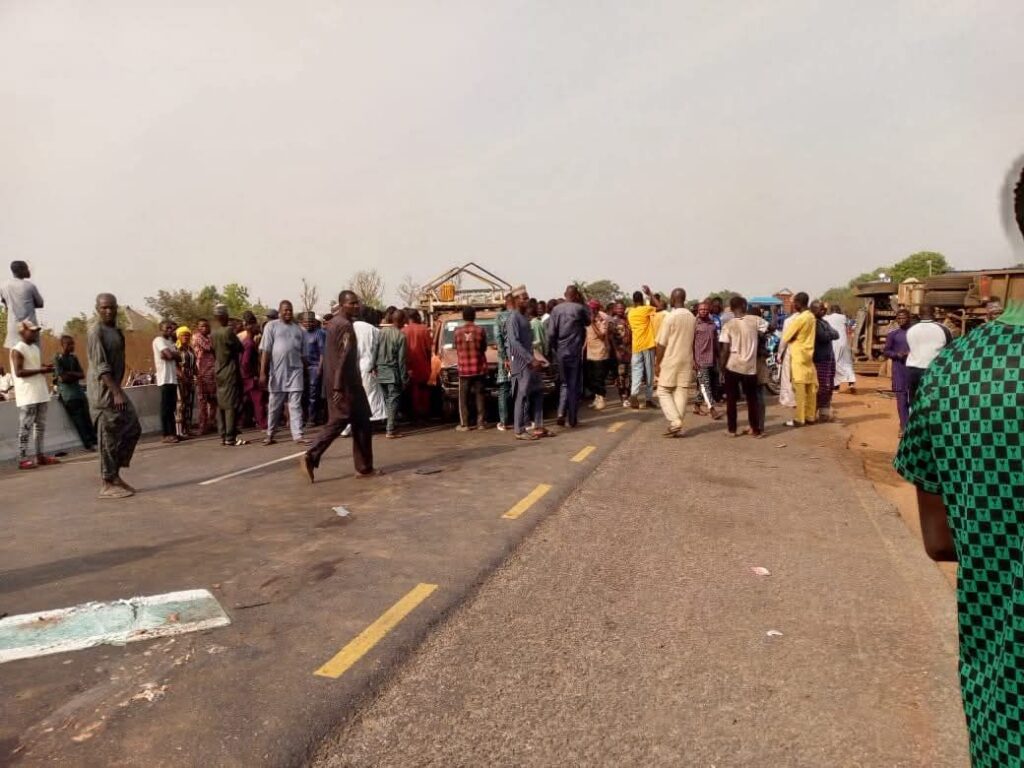
The Okolowo Expressway, a vital Federal road in Nigeria, has sadly become a death trap. Serving as a major arterial link between the Northern and Southern regions of the country, this expressway—stretching through Ilorin South and Moro LGAs in Kwara State—connects Oyo State to Niger State, making it one of the most strategic gateways in Nigeria’s transportation network. Yet, despite its importance, the road has turned into a tragic hotspot where lives are lost all too frequently due to preventable accidents.
In just the past month, more than ten lives have been reported lost on this highway due to a range of avoidable incidents—vehicle collisions, oil spillages, tanker falls, and infernos. These accidents are primarily the result of overspeeding, brake failures, reckless driving, and unsafe pedestrian crossings. The Okolowo Expressway has deteriorated into a corridor of carnage, where road safety is compromised daily.
Over the years, there have been numerous recommendations to mitigate these risks—ranging from dualization of the expressway to the construction of pedestrian bridges. These are undoubtedly helpful interventions, but in the context of a long, linear stretch of road interspersed with residential neighbourhoods, pedestrian bridges alone are insufficient. They do not comprehensively address the root causes of the high fatality rate.
A more immediate and practical solution would be to implement computerized speed regulation systems, combined with the installation of physical speed breakers along critical portions of the road. These measures should be introduced alongside strict enforcement of speed limits, with severe penalties for violations. Specifically, from Shao Junction to at least one kilometre beyond the Okolowo Expressway Junction, speed breakers should be installed, and a mandatory speed limit of 20 km/h should be enforced.
The enforcement of such regulations is not as far-fetched as it may seem. Drivers regularly comply with speed restrictions at military checkpoints across the country. With clear signage and credible enforcement mechanisms, there is no reason they wouldn’t comply on a civilian highway—especially if punitive measures for non-compliance are implemented without exception.
Authorities in Kwara State, from the Governor to federal lawmakers, have made several appeals to the Federal Government through the Ministry of Works and Housing to address the dangers of this road. Unfortunately, these efforts have been mired in bureaucratic red tape and administrative delays. As a result, meaningful intervention has yet to materialize. The state government, constrained by jurisdictional boundaries and funding concerns, hesitates to take decisive action without Federal approval or the assurance of cost reimbursement. Meanwhile, citizens continue to pay the ultimate price.
This hesitation must end. While we wait for long-term Federal intervention—such as road expansion or dualization—state and local authorities must prioritize immediate, lifesaving measures that are within their power to implement. It is unacceptable that jurisdictional bureaucracy should outweigh the value of human life.
The time to act is now. By enforcing strict speed limits, installing speed breakers, and introducing computerized regulation systems, we can drastically reduce accidents and restore safety to the Okolowo Expressway. Citizens deserve a road that serves as a gateway, not a graveyard. Anything short of urgent and sustained action is a disservice to the people of Kwara and Nigeria at large.
Bolaji Aladie a media practitioner and a concerned indigene of Ilorin writes from Abuja

